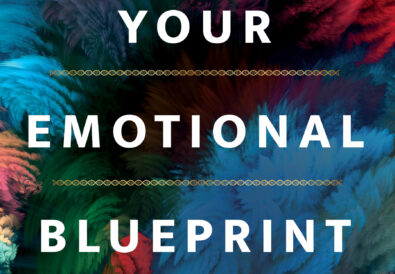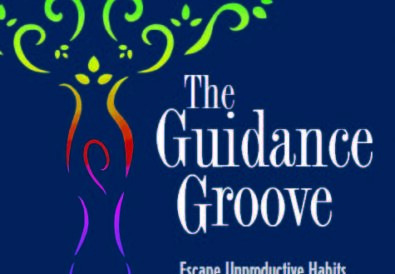Note: numbered references are available on creationsmagazine.com or upon request from mike@adaptivetherapy.com
In a meta-study (a study that combines the results of many studies), it was found that general psychotherapy was much more effective than antidepressant medications1.
Curiously, this evidence is not used in determining NIMH’s (National Institute for Mental Health) spending priorities, as it spends only about 5% on psychotherapy clinical trials. 2 As psychiatrist Richard Friedman states “Despite a vast investment in basic neuroscience research […] we have little to show for it on the treatment front 2.
To understand this bias toward drug therapy, a brief look at the history can be illuminating: In the 1950’s, big tobacco used many techniques, mainly public relations, to undermine emerging research on the dangers of tobacco. In the 1960’s big sugar funded research to downplay the negative effects of sugar, though did not disclose that they paid for the research. There are ample indications that pharmaceutical companies have been influencing, if not skewing, research into the genetics and biology of psychological problems.3, 4, 8
So how is this bias maintained?
Robert Whitaker, speaking at the Symposium for Scientific Freedom, mentions two serious public health concerns. The first is “tardive dysphoria” (antidepressantinduced depression) and the second is PSSD (Post SSRI Sexual Dysfunction). Whitaker did a search of the top 5 psychiatric journals for the past 25 years and found 0 (zero) references to these important topics 3. He then details how individuals who question the safety and efficacy of psychotropic drugs are marginalized, if not punished 3.
Paolo Migone, in his article “The influence of pharmaceutical companies,” explains how this censorship is maintained:
Big Pharma virtually supports – directly or indirectly – every journal and scientific meeting of the field. Without the income due to advertisements, most psychiatric journals would cease publications and many meetings would be canceled (cancellations of important national meetings, due to lack of financial support by pharmaceutical companies, indeed occurred). Also the scientific information that reaches every practitioner is heavily controlled by pharmaceutical companies […] 4
Well, I can always Google to find out more information, right? Dr. Joseph Mercola writes in his article “Shocking Proof How Google Censors Health News,” how Google implemented a search change that made many independent health news sites (like PeoplesPharmacy.com) show up on later pages of search, while showing sites like WebMD on page 1. Mercola writes:
WebMD is owned by the global investment firm KKR & Co. […] KKR also owns Medscape and MedicineNet. com and, according to Fast Company, 6 “is trying to corner the market on Internet-based health information dissemination …”
WebMD […] in 2010 [was] caught providing users with a fake depression screening test. The test—in which 100% of quiz-takers ended up having a “high likelihood of major depression” and were directed to talk to their doctor about treatment – was sponsored by drug giant Eli Lilly[…] 5
Other bits: the DSM, “patient advocacy groups,” undisclosed drug company payments and “KOLs” [key opinion leader].
On the DSM: (the book of mental health diagnosis), Marcia Angell (former Editor in Chief of the New England Journal of Medicine) writes about the DSM-5 “[Chairperson] Dr. Kupfer reports having served on advisory boards for Eli Lilly & Co, Forest Pharmaceuticals Inc, Solvay/ Wyeth Pharmaceuticals, and Johnson & Johnson […] 56 percent of members of the work groups disclosed significant industry interests.” 6
On “patient advocacy groups”: Robert Whitaker writes “Eli Lilly gave $551,000 to NAMI […], $465,000 to the National Mental Health Association, $130,000 to CHADD (an ADHD [attention deficit/ hyperactivity disorder] patient-advocacy group), and $69,250 to the American Foundation for Suicide Prevention.” 7
On undisclosed drug company payments: The NY Times writes about how Dr. Charles B. Nemeroff “earned more than $2.8 million in consulting arrangements with drug makers from 2000 to 2007, failed to report at least $1.2 million of that income to his university and violated federal research rules […] Dr. Nemeroff is a charismatic speaker and a widely admired scientist who has written more than 850 research reports and reviews. He was editor in chief of the influential journal Neuropsychopharmacology […]” 8
On “KOLs”: Ray Moynihan writes
Former sales representative Ms. Elliott says drug companies desperately need key opinion leaders. “There are a lot of physicians who don’t believe what we as drug representatives say. If we have a KOL stand in front of them and say the same thing, they believe it.
And a note on the “Chemical Imbalance” theory.
An old Pfizer commercial makes this claim “While the cause [of depression] is unknown, depression may be related to an imbalance of natural chemicals between nerve cells in the brain. Prescription Zoloft works to correct this imbalance.” From the article “Is Depression Just Bad Chemistry?”:
Using advertisements such as this one, pharmaceutical companies have widely promoted the idea that depression results from a chemical imbalance in the brain.10
The Council for Evidence Based Psychiatry has this to say about “chemical imbalances”:
Psychiatric drugs have often been prescribed to patients on the basis that they cure a “chemical imbalance”. However, no chemical imbalances have been proven to exist in relation to any mental health disorder. There is also no method available to test for the presence or absence of these chemical imbalances.11
Starting to see a pattern here?
The case for psychotherapy
Dr. John Briere, author of many books on trauma and recovery states “If we could somehow end child abuse and neglect, the eight hundred pages of DSM […] would be shrunk to a pamphlet in two generations.”
Psychotropic drugs will never help someone make sense of their traumas, can never teach social skills nor can they ever help someone develop a compassionate narrative for the story of their life. What I have found to work is to simply allow someone to tell their story, while listening with interest and empathy. For the more painful stories, asking “how did you survive all that pain?” All the while, reminding someone that they are not a diagnostic label but rather, a human being of great dignity and worth. And that like the mythic heroes, they have bravely fought monsters and dragons and have lived to tell the tale.
For more, search YouTube for Robert Whitaker’s talk “Scientific Censorship in Psychiatry.”
Michael Etts, LCSW-C is a clinical social worker who practices at Adaptive Therapy in Southern Maryland (website: AdaptiveTherapy.com). You can reach him by email at mike@adaptivetherapy.com.

















